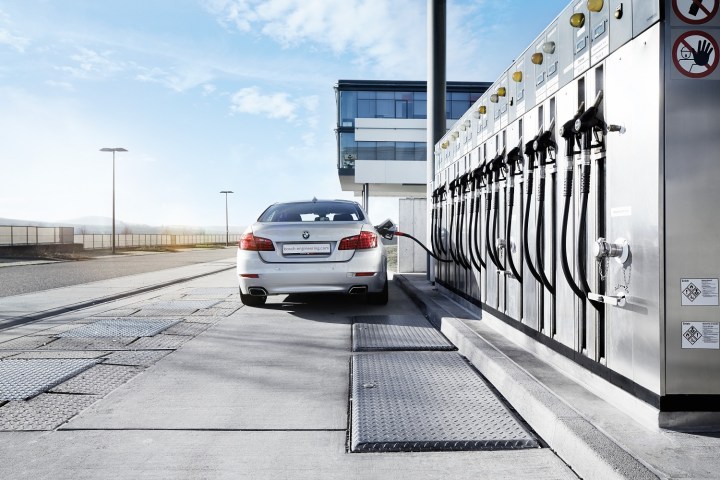
Bosch is brainstorming to generate ideas on how to make it. The first step in the alchemy-like process would involve extracting hydrogen from water and adding carbon to it. The carbon could be sourced from factories which generate it as a waste product, or extracted from the air using special filters. The carbon and the hydrogen would then be combined to produce a liquid fuel. The process would be entirely CO2-neutral because the plans tentatively call for a power-generation plant fueled by renewable energy.
Because the fuel is man-made, engineers would be able to dial in different properties for various uses. One type of synthetic fuel could replace gasoline, another could fill in for diesel, and a third could take over for kerosene.
“Achieving our future climate targets calls for other intelligent solutions apart from electro-mobility. After all, even if all cars were to drive electrically one day, aircraft, ships, and even trucks will still run mainly on fuel. Carbon-neutral combustion engines that run on synthetic fuels are thus a very promising path to explore – also for passenger cars,” said Volkmar Denner, Bosch’s chairman.
Reducing the environmental impact of the freight industry is just one piece of the puzzle. Bosch points out synthetic fuels are theoretically compatible with existing infrastructure, so there would be no need to build a brand-new network of refueling stations. They’re also compatible with every type of internal combustion engine, so they could play a sizable role in keeping classic cars on the road in the coming decades. How else will you drive your 1939 Lincoln hot rod 50 years from now?
Synthetic fuel technology is still at the embryonic stage of development, and making it remains a complicated and expensive process which requires government funding. Bosch engineers predict the fuels could get considerably cheaper in the coming years as production ramps up. The fuel itself could cost about 1.20 euros per liter in the long run, which is about the price of gasoline in Europe right now. Of course, it will inevitably get more expensive once taxes are factored in.
Bosch is working on numerous ways to reduce exhaust emissions, but the company made it clear it’s not currently developing its own brand of synthetic fuel.
“While we can’t speculate on what Bosch’s exact role will be in this technology, we believe the industry at-large should work together to make this technology a reality as a way to further reduce emissions,” company spokesman Tim Wieland told Digital Trends.
Updated by Ronan Glon: Added quote which clarifies Bosch isn’t currently developing synthetic fuel.



